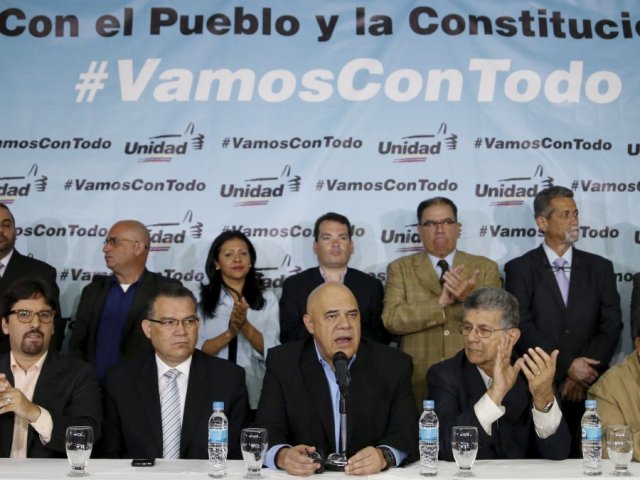
United States President Barack Obama renewed an executive order, first issued a year ago, on March 3 that declares Venezuela “an unusual and extraordinary threat to the national security and foreign policy of the United States”, TeleSUR English said the next day.
The order allows the US government to impose sanctions on Venezuela. In protest, Venezuela has withdrawn its charge d'affaires, Maximilian Arvelaez, from the United States, TeleSUR English said on March 9.
Venezuela's socialist President Nicolas Maduro called on grassroots and social movements to join a national march against a decree on March 12. “I reject once again this criminal declaration against the peace of the homeland,” Maduro said. “I want to call you all to the initiative, to the national march to reject Obama's new threat to Venezuela … We have to respond in the streets.”
When the executive order was first issued in March last year, it provoked a storm of controversy inside Venezuela and a backlash throughout Latin America. Leaders from throughout the region condemned the decree, and in Venezuela millions signed a petition calling for its repeal.
All 33 members of the Community of Latin American and Caribbean States (CELAC, which united all nations in the Americas except the US and Canada) called for the US to reverse its decree. The Union of South American Nations (UNASUR), which unites 12 countries, also strongly criticised Obama's order.
The renewal of the decree is valid for one year. In a letter to US Congress justifying the extension, Obama said that alleged conditions that first prompted the order had “not improved”.
In light of the renewal, CELAC and UNASUR repeated their condemnations of the decree, with Venezuela Analysis reporting on March 7 that both bodies had pledged their firm support for Venezuela.
UNASUR tweeted: “The renewal of US unilateral measures against Venezuela is a disappointment for the 12 UNASUR member states because it violates the principle of non-intervention, as agreed upon at the Ministerial Meeting held on March 9, 2015.”
Meanwhile, Venezuela Analysis said on March 9 that Venezuela's right-wing opposition coalition, the Democratic Unity Roundtable (MUD), had unveiled its “roadmap” for ousting Maduro from power and ushering in a “change of government”.
Coming on the heels of the landslide opposition victory in the December parliamentary elections, in which the MUD won almost two-thirds of the seats, the announcement echoes recent promises by MUD legislators to remove Maduro within six months.
MUD general secretary Jesus Torrealba said the plan has four components.
In the first place, MUD lawmakers plan to pass an amendment to the nation's constitution shortening the presidential term from six to four years, in a move that they hope will “bring about new elections this year”.
At the same time, the right-wing coalition intends to begin the extensive legal process for convening a recall referendum, which includes the collection of close to four million signatures, corresponding to 20% of the electorate.
The MUD also plans to convoke street mobilisations to “demand the resignation of Maduro”, with the first protest scheduled for March 12.
Venezuela Analysis said: “The call for protests harkens back to the 2014 opposition campaign known as 'the exit', which sought to force the resignation of President Maduro through violent street mobilisations that resulted in the deaths of 43 people, the majority of whom were passersby and security personnel.
“Last year, opposition leaders issued numerous calls for mass protests, which were largely unsuccessful, marred by low turnout and internal divisions.”
If it finds other paths blocked, the MUD said it would initiate the process of convening a constituent assembly to rewrite the constitution drawn up and passed in a referendum in 1999, which contains many of the progressive values driving the Bolivarian Revolution that the opposition opposes.
But the opposition's strategy faces various constitutional hurdles, Venezuela Analysis said, that may prevent it from achieving its aims.
According to constitutional experts, a constitutional amendment reducing the presidential term would only affect future presidential mandates, permitting Maduro to finish his six-year term.
Similarly, a recall referendum will face an extended series of legal steps that may or may not culminate in the successful recall of the president.
The MUD parliamentary bloc has announced its intention to pass a law to expedite the recall process, though Venezuela Analysis said no details are yet available.
Like the article? Subscribe to Green Left now! You can also like us on Facebook and follow us on Twitter.